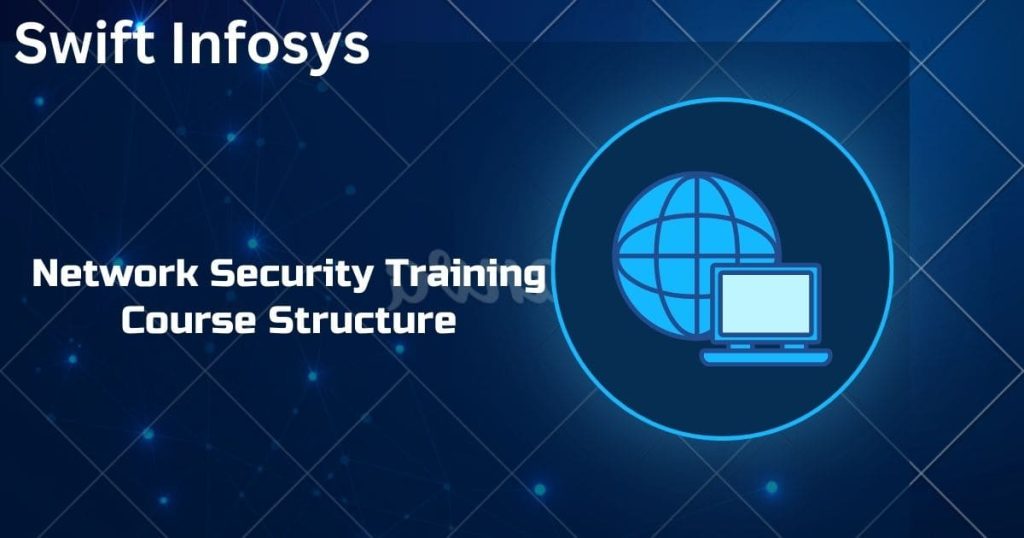In today’s digital age, where cyber threats loom large, network security has become paramount for businesses and individuals alike. With the rapid evolution of technology, staying ahead of cybercriminals requires continuous learning and upskilling. If you’re looking to fortify your knowledge in network security, you’ve come to the right place. In this article, we’ll explore the best network security courses and certifications available to help you become a proficient cyber defender.

1. Cisco Certified Network Associate (CCNA) Security
The Cisco CCNA Security certification is renowned for equipping individuals with the skills needed to secure Cisco networks. This comprehensive course covers topics such as network security principles, secure access, VPN encryption, firewalls, intrusion prevention systems (IPS), and more. With Cisco being a global leader in networking technology, obtaining this certification enhances your credibility and opens doors to numerous career opportunities in network security.
2. Certified Information Systems Security Professional (CISSP)
The CISSP certification is a globally recognized standard of achievement in the field of information security. While it covers various domains of security, including risk management and software development security, it also delves deep into network security concepts. By earning CISSP certification, you demonstrate your expertise in designing, implementing, and managing a secure network infrastructure, making you a valuable asset to any organization concerned with safeguarding its digital assets.
3. CompTIA Security+
Ideal for beginners in the field of network security, CompTIA Security+ is a vendor-neutral certification that provides a solid foundation in cybersecurity principles. This certification covers essential topics like network security, cryptography, threats, and vulnerabilities. Recognized globally, CompTIA Security+ validates your knowledge and skills in securing networks and ensuring compliance with industry standards.
4. Certified Ethical Hacker (CEH)
While ethical hacking may seem like a contradiction, it’s a crucial aspect of network security. CEH certification trains individuals to think like hackers, enabling them to identify vulnerabilities and weaknesses in network infrastructures before malicious actors exploit them. This course covers a broad range of topics, including network scanning, enumeration, system hacking, and malware threats. With CEH certification, you gain valuable insights into the mind of cybercriminals, allowing you to better defend against their attacks.
5. Certified Network Defender (CND)
Offered by the EC-Council, the Certified Network Defender (CND) certification is designed for network administrators and security professionals responsible for protecting organisational networks. This course covers network security controls, protocols, perimeter defences, and incident response procedures. By becoming a Certified Network Defender, you demonstrate your ability to safeguard networks from internal and external threats, making you an indispensable asset to any organisation concerned with cybersecurity.
Investing in your education and obtaining certifications in network security is essential for staying ahead in today’s constantly evolving threat landscape. Whether you’re a seasoned professional or just starting your career in cybersecurity, the courses and certifications mentioned above provide the knowledge and skills needed to excel in the field. By earning these certifications, you not only enhance your career prospects but also contribute to making the digital world a safer place for all. Start your journey towards mastering network security today and become a formidable cyber defender.
the Best Network Security Training: A Comprehensive Course Structure
In the realm of cybersecurity, where the stakes are high and threats ever-evolving, having a robust understanding of network security is indispensable. Whether you’re an aspiring cybersecurity professional or a seasoned IT professional looking to upskill, choosing the right network security training is crucial. In this article, we’ll delve into the intricacies of the best network security course structure to help you make an informed decision and embark on your journey to becoming a proficient cyber defender.

1. Foundation of Network Security
Every comprehensive network security training begins with laying a solid foundation. This module covers fundamental concepts such as network protocols, OSI model, TCP/IP fundamentals, and basic cryptographic principles. Understanding these basics is essential as they form the building blocks upon which more advanced topics are built.
2. Threat Landscape Analysis
In today’s digital landscape, cyber threats come in various forms, from malware and phishing attacks to DDoS (Distributed Denial of Service) assaults. A robust network security course structure includes a detailed analysis of the current threat landscape. This module covers different types of cyber threats, their characteristics, attack vectors, and the impact they can have on organisational networks.
3. Network Defense Mechanisms
Once you grasp the fundamentals and understand the threats, the next step is to explore network defence mechanisms. This module delves into various security technologies and strategies aimed at protecting networks from unauthorised access, data breaches, and other cyber threats. Topics covered may include firewalls, intrusion detection and prevention systems (IDS/IPS), VPNs (Virtual Private Networks), access control mechanisms, and endpoint security solutions.
4. Vulnerability Assessment and Penetration Testing
A crucial aspect of network security training is learning how to identify and mitigate vulnerabilities before they are exploited by malicious actors. This module focuses on vulnerability assessment techniques, penetration testing methodologies, and ethical hacking principles. Hands-on labs and simulations allow students to practise identifying vulnerabilities, exploiting them ethically, and recommending remediation measures to strengthen network defences.
5. Incident Response and Management
Despite robust preventive measures, security incidents may still occur. A comprehensive network security course structure includes training on incident response and management. This module covers incident detection, analysis, containment, eradication, and recovery procedures. Students learn how to develop incident response plans, coordinate with stakeholders, and minimise the impact of security incidents on organisational networks.
6. Legal and Ethical Considerations
Ethics and legal compliance are integral components of network security training. This module educates students about legal frameworks, regulations, and industry standards governing cybersecurity practices. Additionally, it emphasises ethical considerations, professional conduct, and the importance of respecting privacy and confidentiality.
Choosing the best network security training is a critical decision that can significantly impact your cybersecurity career. A well-structured course not only equips you with the knowledge and skills needed to defend networks effectively but also prepares you to navigate the complex and ever-changing cybersecurity landscape. By opting for a training program that covers the foundational concepts, threat analysis, defense mechanisms, vulnerability assessment, incident response, and legal considerations, you set yourself on the path to becoming a proficient network security professional. Embark on your learning journey today and fortify your expertise in safeguarding digital assets against cyber threats.
The Best Network Security Training Syllabus: A Blueprint for Cyber Defense Mastery
In the dynamic landscape of cybersecurity, network security stands as the frontline defence against cyber threats. For individuals aspiring to become adept cyber defenders or seasoned professionals seeking to enhance their skills, choosing the right network security training syllabus is paramount. In this article, we’ll dissect the components of the best network security training syllabus, guiding you towards a comprehensive understanding and mastery of cyber defence principles.
1. Fundamentals of Networking
A robust network security training syllabus begins with a solid grounding in networking fundamentals. This segment covers essential concepts such as network architectures, protocols, addressing, and routing. Understanding these basics lays the groundwork for comprehending the intricacies of securing network infrastructures effectively.
2. Cyber Threat Landscape Analysis
To defend against cyber threats effectively, it’s imperative to understand the adversary. This module delves into the current cyber threat landscape, examining various types of threats, attack vectors, and threat actors. Students learn to recognize common attack patterns, assess risk levels, and develop proactive defence strategies tailored to mitigate specific threats.
3. Network Security Technologies and Mechanisms
This segment explores the arsenal of security technologies and mechanisms employed to safeguard network infrastructures. Topics include firewalls, intrusion detection/prevention systems (IDS/IPS), access control mechanisms, encryption, virtual private networks (VPNs), and endpoint security solutions. Through hands-on exercises and simulations, students gain practical experience in configuring, deploying, and managing these security controls effectively.
4. Vulnerability Assessment and Penetration Testing
A critical aspect of network security training is learning to identify and remediate vulnerabilities before they are exploited by malicious actors. This module focuses on vulnerability assessment techniques, penetration testing methodologies, and ethical hacking principles. Students gain proficiency in conducting vulnerability scans, exploiting vulnerabilities ethically, and recommending remediation measures to fortify network defences.
5. Incident Response and Management
Despite robust preventive measures, security incidents may occur. This module equips students with the knowledge and skills needed to respond swiftly and effectively to security incidents. Topics include incident detection, analysis, containment, eradication, and recovery procedures. Through scenario-based exercises and simulations, students learn to develop incident response plans, coordinate response efforts, and minimise the impact of security incidents on organisational networks.
6. Legal and Ethical Considerations
Ethics and legal compliance are integral components of network security training. This segment educates students about relevant legal frameworks, regulations, and industry standards governing cybersecurity practices. Additionally, it emphasises ethical considerations, professional conduct, and the importance of upholding privacy and confidentiality rights.
Selecting the best network security training syllabus is paramount to mastering the art of cyber defense. By opting for a syllabus that covers the fundamentals of networking, cyber threat analysis, security technologies, vulnerability assessment, incident response, and legal/ethical considerations, you equip yourself with the knowledge and skills needed to safeguard network infrastructures effectively. Embark on your journey to becoming a proficient cyber defender today, armed with a comprehensive understanding of network security principles and practices.
the Best Network Security Training Exams and Fees: Your Path to Cyber Defense Certification
Embarking on a journey to become a proficient cyber defender requires more than just acquiring knowledge—it involves demonstrating your expertise through certifications. When considering the best network security training, understanding the associated exams and fees is crucial. In this article, we’ll delve into the examinations and fees associated with the top network security certifications, guiding you towards making informed decisions on your path to cyber defence mastery.
1. Cisco Certified Network Associate (CCNA) Security
The CCNA Security certification from Cisco is renowned for validating individuals’ skills in securing Cisco networks. The exam, coded as 210-260 IINS, assesses candidates’ knowledge in areas such as network security concepts, secure access, VPN encryption, firewalls, and intrusion prevention systems (IPS). The exam fee typically ranges from $300 to $325 USD, varying based on location and currency exchange rates.
2. Certified Information Systems Security Professional (CISSP)
CISSP certification is a globally recognized standard in information security. The exam covers eight domains, including security and risk management, asset security, communication and network security, and identity and access management, among others. The exam fee is $699 USD, and candidates must meet specific experience requirements to qualify for the certification.
3. CompTIA Security+
CompTIA Security+ is an entry-level certification that validates candidates’ foundational knowledge in cybersecurity. The exam, coded as SY0-601, covers topics such as threats, attacks, and vulnerabilities, technologies and tools, architecture and design, identity and access management, and risk management. The exam fee typically ranges from $349 to $370 USD.
4. Certified Ethical Hacker (CEH)
CEH certification equips individuals with the skills needed to identify and exploit vulnerabilities ethically. The exam assesses candidates’ knowledge in areas such as reconnaissance, enumeration, gaining access, maintaining access, and covering tracks. The exam fee varies but typically falls between $950 to $1,199 USD.
5. Certified Network Defender (CND)
Offered by the EC-Council, the CND certification focuses on network defence strategies and techniques. The exam covers topics such as network security controls, protocols, perimeter defences, and incident response procedures. The exam fee varies but generally ranges from $200 to $600 USD.
Investing in network security training is an essential step towards becoming a proficient cyber defender. Understanding the exams and fees associated with top network security certifications allows you to plan your certification journey effectively. Whether you choose certifications from Cisco, CompTIA, ISC², EC-Council, or other reputable organizations, obtaining these certifications enhances your credibility and opens doors to numerous career opportunities in network security. Take the first step towards cyber defense mastery today by embarking on your certification journey and fortifying your expertise in safeguarding digital assets against cyber threats.
Network Security Jobs and Salaries: Your Guide to Cybersecurity Career Success
In today’s digitally-driven world, the importance of network security cannot be overstated. As cyber threats continue to evolve, organisations across industries are ramping up their efforts to secure their digital assets. This surge in demand has led to a plethora of lucrative job opportunities in the field of network security. In this article, we’ll explore some of the best network security jobs and delve into the attractive salaries they offer, providing insights for those considering a career in cybersecurity after completing the best network security training.
1. Network Security Engineer
Network security engineers are tasked with designing, implementing, and maintaining robust security infrastructures to protect organisational networks from cyber threats. According to industry reports, the average salary for network security engineers ranges from $80,000 to $120,000 per year, with variations based on factors such as experience, location, and industry.
2. Security Analyst
Security analysts play a vital role in monitoring organizational networks for suspicious activities, investigating security incidents, and implementing countermeasures to mitigate risks effectively. The average salary for security analysts typically falls between $70,000 and $110,000 annually, depending on factors such as experience level, geographic location, and employer.
3. Penetration Tester (Ethical Hacker)
Penetration testers, also known as ethical hackers, simulate real-world cyber attacks to identify and exploit vulnerabilities in organisational networks. Due to the specialised nature of their work, penetration testers command high salaries, with average annual earnings ranging from $90,000 to $140,000, based on experience, certifications, and industry demand.
4. Security Consultant
Security consultants provide expert guidance to organisations on developing and implementing effective cybersecurity strategies. They assess security risks, evaluate existing controls, and recommend solutions to enhance security posture. The average salary for security consultants ranges from $90,000 to $150,000 per year, with potential for higher earnings based on expertise and consulting fees.
5. Chief Information Security Officer (CISO)
As the highest-ranking cybersecurity executives in organisations, Chief Information Security Officers (CISOs) are responsible for overseeing cybersecurity initiatives and ensuring compliance with regulatory requirements. CISOs command some of the highest salaries in the cybersecurity field, with average annual earnings surpassing $200,000 and reaching up to $400,000 or more for top-level executives in large enterprises.
The field of network security offers a plethora of rewarding job opportunities with attractive salaries for individuals equipped with the right skills and training. By completing the best network security training and obtaining relevant certifications, you can position yourself for a successful career in cybersecurity. Whether you aspire to be a network security engineer, security analyst, penetration tester, security consultant, or CISO, the potential for career growth and financial success in network security is vast. Invest in your cybersecurity education today and embark on a fulfilling journey towards a prosperous career defending against cyber threats.






